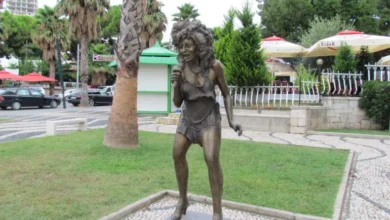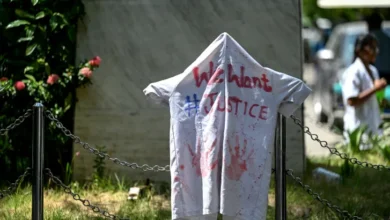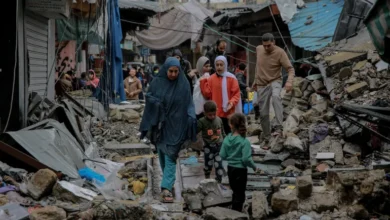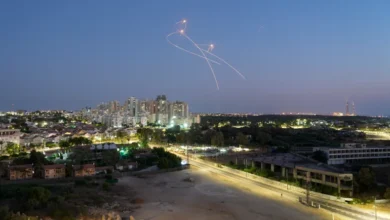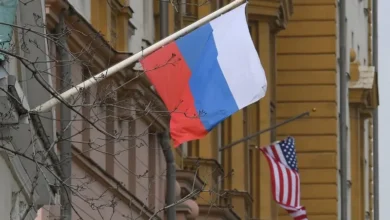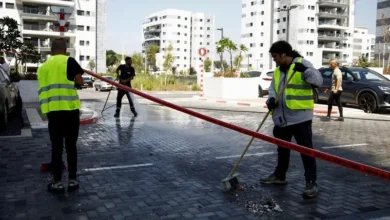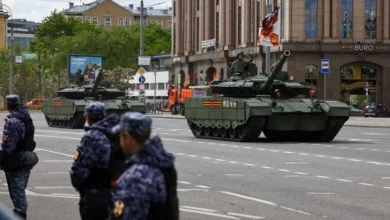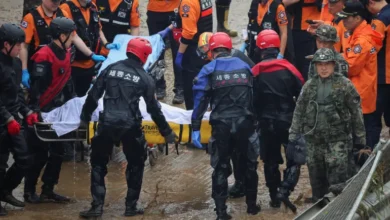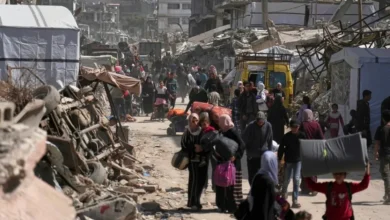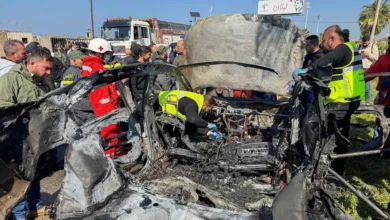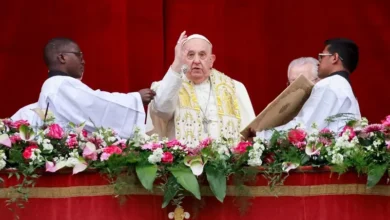‘Death corridor’: The al-Samounis recall terror of ‘safe passage’ in Gaza
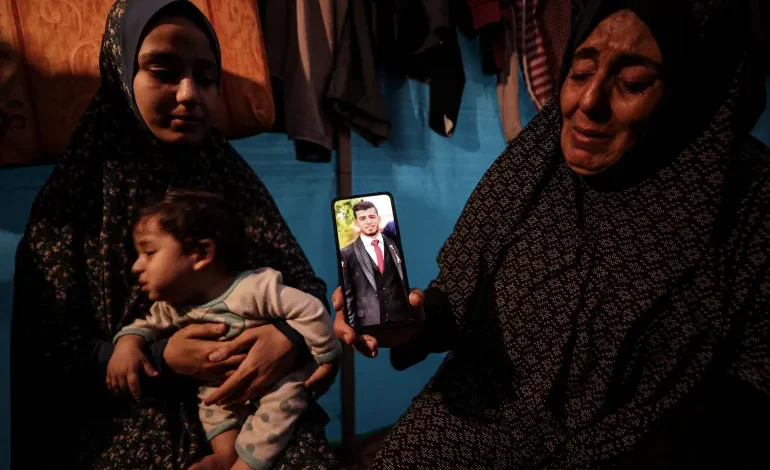
It’s been two weeks, and the al-Samounis still have no idea what happened to their sons and brothers. They are in shock.
The 36 women and children, crammed into one tent for displaced people on the grounds of Al-Aqsa Martyrs Hospital, have four blankets to share among themselves.
They used to live in Zeitoun, in the southeast of Gaza City, where they farmed their 69 dunams (17 acres) in peace, they said.
But from the first day of Israel’s assault on Gaza, October 7, they were forced to flee south, and decided to take what the Israeli army said was a “safe corridor”: Salah al-Din, the main road that runs north-south in the Gaza Strip. But the corridor was not so safe after all.
Zahwa al-Samouni, 56, could barely talk when she recounted how the Israeli soldiers took her three sons away.
The family were walking on the road, trying not to fixate on the bodies of dead Palestinians on the ground, when they reached a newly erected Israeli checkpoint. Before the family could pass through the turnstiles, the soldiers ordered Abdullah al-Samouni, 24, to step to the side of the road, in a trench hidden from view. His younger brother Hamam, 16, started calling for Abdullah, visibly distraught. The soldiers ordered Hamam to join his brother.
The oldest brother, Faraj, a farmer and father of six, shouted at the soldiers, asking them where they were taking Abdullah and Hamam. His protest resulted in the soldiers commanding him to join his brothers.
The rest of the family, stunned, made their way through the turnstiles.
“When we passed the checkpoint, I saw two men stripped to their underwear in the trench with numbers marked on their shoulders,” Zahwa said. “There were other men, and I could make out my son Faraj.”
Her sister-wife Zeenat, who is Abdullah and Hamam’s mother, said she informed the Red Cross of the brothers’ names, ID numbers and mobile phone numbers.“Every day that goes by is like a year for us,” she said. “I sit by the entrance of the tent hoping someone will have news of them. I just want to know what happened to them, if they’re OK, if they’re alive.”The mother of seven had taken the so-called safe corridor three days before her sons and stepchildren. She had been staying at a relative’s house, then tried staying at a school shelter, but the bombings became too intense.
“We were afraid, but we decided to take the risk because we knew other people who managed to reach south,” the 49-year-old said. “We walked past our land, and we saw so many Israeli tanks there and all our homes destroyed.”
Zeenat and her family raised white flags and their IDs in front of the Israeli snipers.
“We walked with our hearts about to jump out with fear, starting from nine in the morning,” she said. “When we finally got to Deir el-Balah, the sun was setting.”
She said she had seen children’s torn limbs among the bodies on the road.
Zahwa said that when she made the same trek three days later, Israeli soldiers told them anyone who stopped moving at all or looked back would be shot.
“They jeered at us as we passed the checkpoint,” Zahwa said. “They swore at us in Arabic, using the most foul words, and cursed our prophet Muhammad and God. They called us Hamas supporters, and promised to finish us off when we go south.”
She gripped her face, tears streaming down her cheeks.
Her granddaughter and namesake, 10-year-old Zahwa, recalls the events of that day.
“We were walking, my parents and two brothers and three sisters, and when we got to the checkpoint the Israelis took my dad and uncles,” she said, speaking with a clarity beyond her years.
“My dad [Faraj] was holding my hand, and the Israelis took him from me,” she said, pain etched on her face. “The soldiers also took the bag that had our clothes in it. Just clothes, not bombs or weapons,” she scoffed.
The younger Zahwa said the Israeli soldiers shot a man in front of them and did nothing as he bled to death.
“The man had learning disabilities,” she said. “He was walking in a line and looked back. The soldiers told him to look straight ahead, and as he turned his head they shot him in the stomach.”
